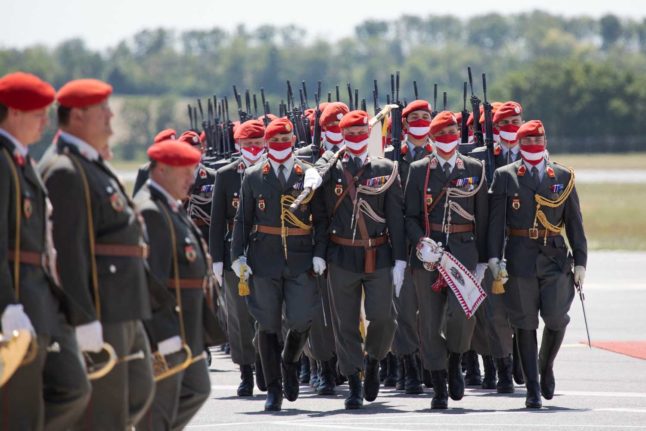The Austrian Armed Forces have warned of a “very high” risk of further disruption between Russia and the European Union, according to Major General Peter Vorhofer during a presentation of the 2024 risk assessment report.
“This means that there is a high probability that we will experience hybrid warfare in 2024,” said Vorhofer. The new military “disorder” era will accompany the world and Austria for “at least another two decades”.
According to the report, the “range of possibilities” in a “hybrid” warfare extends from systematic disinformation campaigns, political provocations, and threats to the organisation of migration movements and their misuse as a weapon to destabilise individual EU member states or the Union as a whole.
Disinformation, migration and supply risks: What are the risks facing Austria?
The Austrian Military highlights “disinformation” as an “underestimated threat” facing the country. “A web of ‘alternative facts’, fake news and disinformation is putting increasing pressure on the truth”, the report reads. The military also stated that disinformation is increasingly becoming a strategic weapon in war, influencing public opinion.
READ ALSO: Austrians warned as country remains dependent on Russia for gas supplies
“In the run-up to the European elections, National Council elections and US presidential elections, disinformation campaigns can be expected”, the report stated.
According to the report, migration flows in Austria also “harbours social risks”, but Austria should promote the opportunities and potential of regular migration. The report goes: “The lack of or inadequate solutions for receiving migrants and refugees, resilient immigration structures and an effective repatriation process creates a feeling of chaos and loss of control. This strengthens populist parties”.
READ ALSO: How much of a threat is Austria’s far-right Identitarian Movement?
Another risk noted by the military is supply risks, as the group warns of a need to make dependencies of raw materials “smarter and more diversified from the outset”. In that sense, the Army also asked for inter-ministerial cooperation to protect critical infrastructure in Austria.
They added: “Artificial intelligence represents a security challenge in itself as the connectivity and digitalisation of specific information by AI will enable the exploitation of data on an as yet unforeseeable scale”.
Also when it comes to technology, the Army warned that cyber threats continue to pose a risk to democracy. “Dealing with these threats will require a joined-up approach, both domestically and at the EU level”, they said.



 Please whitelist us to continue reading.
Please whitelist us to continue reading.
Member comments